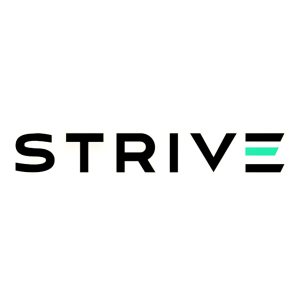ETF Architect Announces Change to the Strive U.S. Energy ETF (NYSE: DRLL)
Current Benchmark | New Benchmark |
Solactive United States Energy | Bloomberg US Energy Select Index |
The benchmark of the Fund will be moving to the Bloomberg US Energy Select Index (the "Index"), which measures the performance of
ABOUT ETF ARCHITECT
Veteran owned and operated; ETF Architect is one of the market leaders for best-in-class ETF operations. ETF Architect partners with advisers, ETF sponsors, mutual fund managers, and industry veterans to launch ETFs. For more information, visit www.ETFArchitect.com.
If you have any questions regarding the Fund, please call 215-882-9983.
Investors should consider the investment objectives, risks, charges and expenses carefully before investing. For a prospectus or summary prospectus with this and other information about the Fund, please visit our website at www.strivefunds.com. Read the prospectus or summary prospectus carefully before investing.
The principal risks of investing in DRLL include: Energy Sector Risk. The market value of securities in the energy sector may decline for many reasons including, fluctuations in energy prices and supply and demand of energy fuels caused by geopolitical events, the success of exploration projects, weather or meteorological events, taxes, increased governmental or environmental regulation, resource depletion, rising interest rates, declines in domestic or foreign production, accidents or catastrophic events that result in injury, loss of life or property, pollution or other environmental damage claims, terrorist threats or attacks, among other factors. Markets for various energy-related commodities can have significant volatility and are subject to control or manipulation by large producers or purchasers. Companies in the energy sector may need to make substantial expenditures, and may incur significant amounts of debt, to maintain or expand their reserves through exploration of new sources of supply, through the development of existing sources, through acquisitions, or through long-term contracts to acquire reserves. Factors adversely affecting producers, refiners, distributors, or others in the energy sector may adversely affect companies that service or supply those entities, either because demand for those services or products is curtailed, or those services or products come under price pressure. Issuers in the energy sector may also be impacted by changing investor and consumer preferences arising from the sector's potential exposure to sustainability and environmental concerns. Oil and Gas Sector Risk. The profitability of companies in the oil and gas sector is related to worldwide energy prices, exploration costs, and production spending. Companies in the oil and gas sector may be at risk for environmental damage claims and other types of litigation, as well as negative publicity and perception. Companies in the oil and gas sector may be adversely affected by natural disasters or other catastrophes, changes in exchange rates, interest rates, changes in prices for competitive energy services, economic conditions, tax treatment, government regulation and intervention, and unfavorable events in the regions where companies operate (e.g., expropriation, nationalization, confiscation of assets and property or imposition of restrictions on foreign investments and repatriation of capital, military coups, social unrest, violence or labor unrest). As a result, the value of these companies may fluctuate widely. Companies in the oil and gas sector may have significant capital investments in, or engage in transactions involving, emerging market countries, which may heighten these risks. Any of these factors could result in a material adverse impact on the Fund's securities and the performance of the Fund. Equity Investing Risk. An investment in the Fund involves risks similar to those of investing in any fund holding equity securities, such as market fluctuations, changes in interest rates and perceived trends in stock prices. The values of equity securities could decline generally or could underperform other investments. Index Calculation Risk. The Index relies on various sources of information to assess the criteria of issuers included in the Index, including fundamental information that may be based on assumptions and estimates. Limited Operating History Risk. The Fund is a recently organized management investment company with a limited operating history. As a result, prospective investors have a limited track record or history on which to base their investment decision.
The Fund is distributed by Quasar Distributors, LLC.
![]() View original content:https://www.prnewswire.com/news-releases/etf-architect-announces-change-to-the-strive-us-energy-etf-nyse-drll-302098238.html
View original content:https://www.prnewswire.com/news-releases/etf-architect-announces-change-to-the-strive-us-energy-etf-nyse-drll-302098238.html
SOURCE ETF Architect







